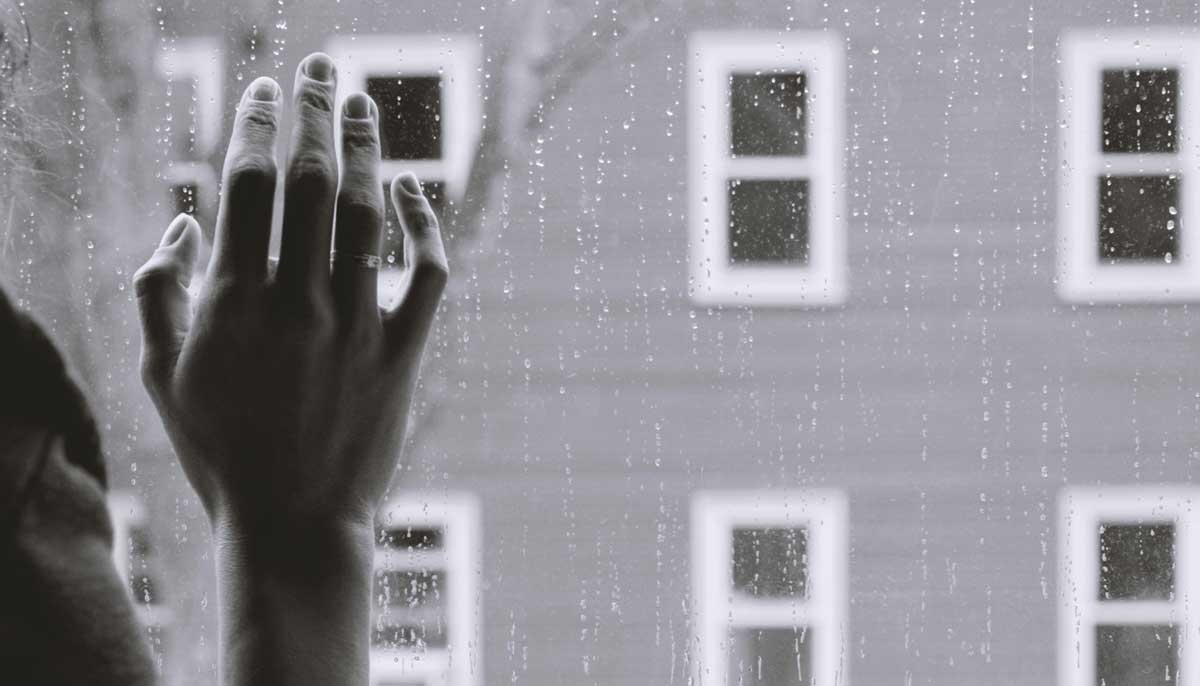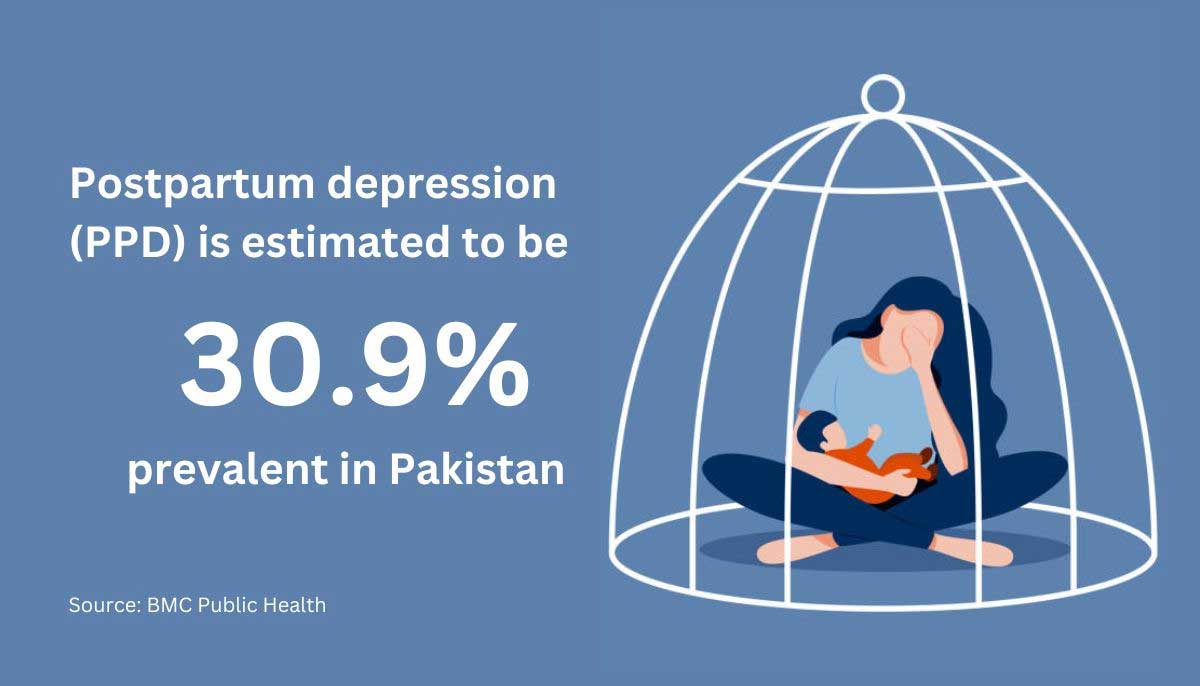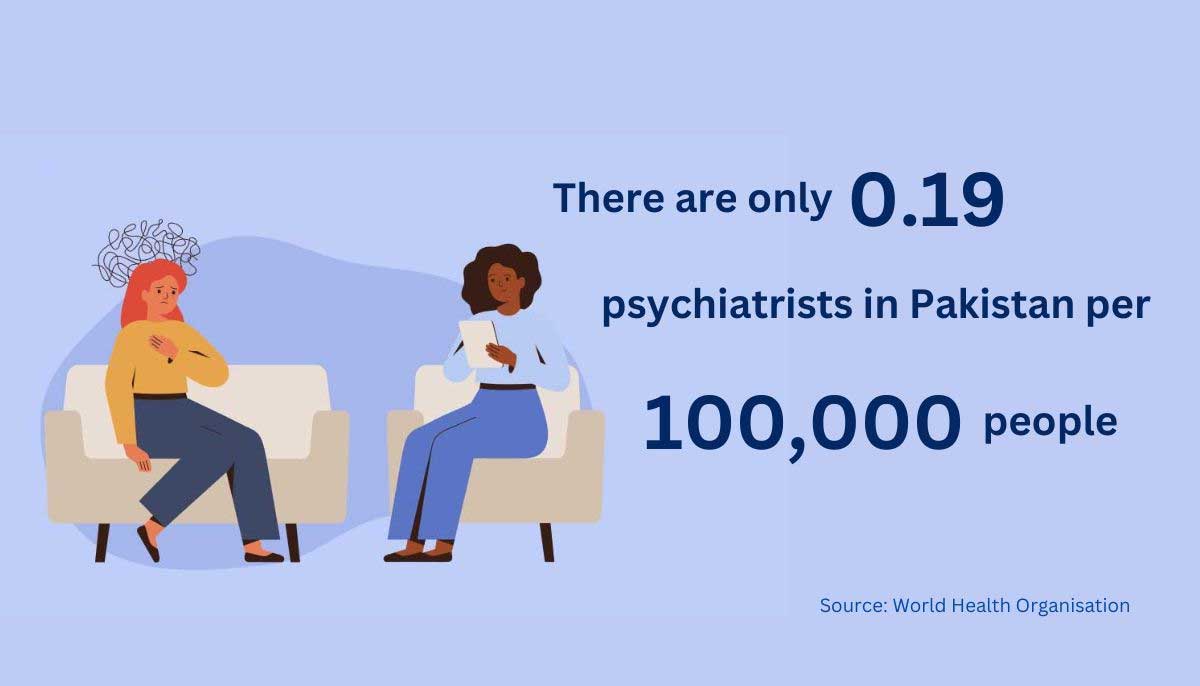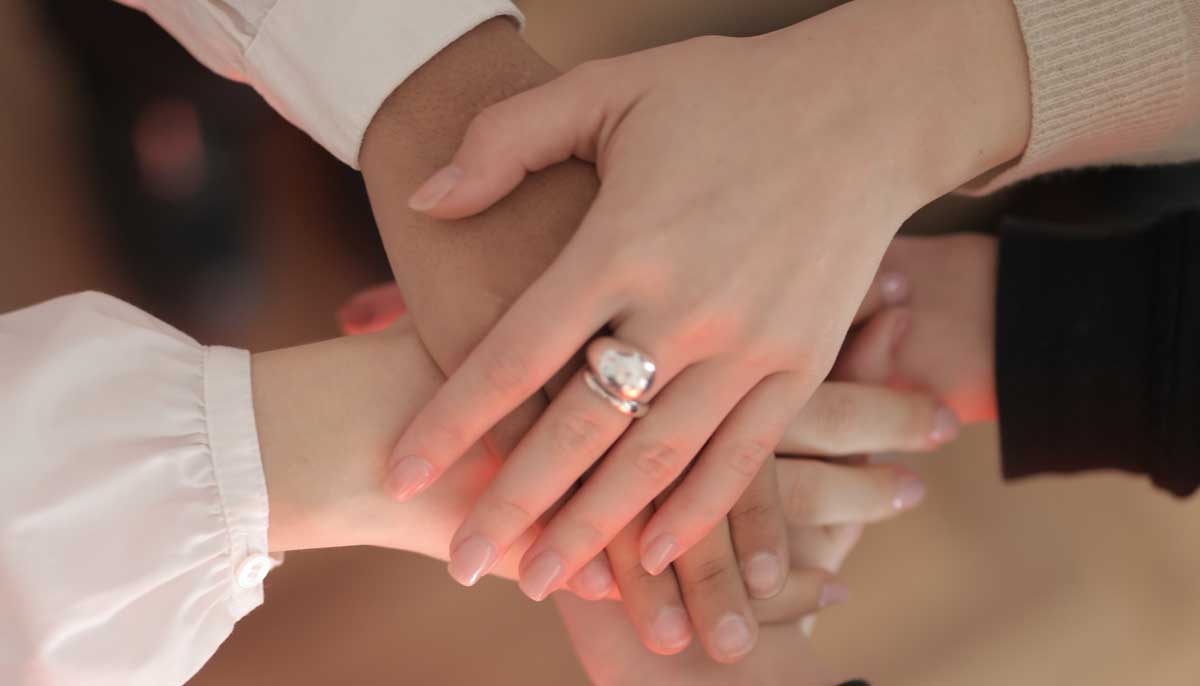Exploring a mother’s mental health journey in Pakistan where the prevalence of postpartum depression (PPD) is estimated to be 30.9%
Monday, May 29, 2023
Ah! To be young and carefree again, full of optimism for the future.
Life’s challenges deplete us, extinguishing the spark we once had. Over the years, I transitioned from an optimistic teenager to a dull and uninspired mom. Blaming situations, myself, and the people around me for the changes I was going through. It wasn’t until I reflected on my life that I realized how my past baggage, societal norms, and hormonal changes had brought me to this point.
As women in desi society, we are raised to believe our ultimate goal in life is to have child(ren) and a happy family. We’re expected to take care of our in-laws, spouses, and children while pursuing our ‘hobbies’ like work or education.
These expectations are so ingrained in our culture that we often overlook how burdensome they can be. As young girls, we initially take them in stride, but when the weight of these responsibilities falls upon us, we find ourselves crushed under them.
Women are significantly more prone to mental disorders, which account for over 4% of Pakistan’s overall disease burden. Approximately 24 million people in Pakistan require psychiatric assistance, but the available resources are inadequate, according to the World Health Organisation (WHO).

Before falling into depression and anxiety, I was an ambitious and hopeful individual with dreams of a successful career along with a picture-perfect household. However, I had started questioning my aspirations post-marriage, and reality struck harder when I conceived.
Getting married made me realize I was biting off more than I could chew. Coming from a household like most in our society, where finances aren’t discussed or handled by children, chores are a way to ‘help’ mom and education is the centre of attraction. Handling and managing an entire household was (is) tough. Once I got the hang of it, I was on my way to welcoming a new life.
While becoming a mother is undoubtedly an incredible experience, it presents immense challenges for women. The flowery, perfect image of motherhood often fails to convey the hardships and sacrifices involved. My pregnancy was far from easy, as my body rebelled against the changes, leaving me physically and emotionally drained.
From relentless morning sickness to debilitating back issues, I endured a rollercoaster of physical struggles. Nevertheless, I remained determined to ensure the health and well-being of my baby, which included being physically and mentally fit. Something I forced upon myself.

I numbed myself to everything around me. From the unwarranted and warranted pieces of advice to gaining weight and being ambitious, I blocked all my feelings out. Through research, conversations, and seeking information, I gradually adapted to the concept of pregnancy.
While my body rebelled, my resilience and determination pushed me to persevere. I refused to give up because, in the grand scheme of things, this process of bringing life into the world is the norm. I accepted that I was not special in the sense that countless women have embraced this transformative journey before me, and many others will. Why can’t I handle pregnancy and managing a household? Thousands of women are housewives, and they are happy, right? Why does not having an active, growing career bother me? Why do I want to have it all?
Throughout the nine-month journey, I was gaslighting myself. I read extensively about how postpartum depression could hit and I thought about being safe from all stated triggers. I was cautious of my feelings and my mental health. Little did I know I was bottling up rather than keeping myself safe.
I was travelling within 40 days, was back in the field in the first three months, and pursuing a Master’s degree about six months later. I was pushing myself to become ‘normal’. I was trying to do it all and some.
In the process, I was in a nuclear set-up with a working partner. Both of us were navigating parenthood and our relationship, along with shouldering other roles.
Again, I bit off much more than I could chew.
And one fine day, I broke. I couldn’t handle sleepless nights, breastfeeding, work, studies, household chores, and everything else I was doing. A day was not enough to finish everything. Having a nanny, whom I monitored like a helicopter, wasn’t enough. I was holding on to the reigns of my (pre-mom) life super tightly. I couldn’t focus, things were blurry. I was forgetful. I lost sense of taste, and couldn’t give my 100% to any of the roles I had taken on myself. Studies, work, life, parenting, romance — I was trying to give everything my all, yet I wasn’t enough.
I was also part of various Facebook mom groups, where the discussions made me realise that I was going through something not uncommon. While the groups couldn’t give me professional help, it helped me to know that I wasn’t alone. I was not going crazy, I was not a bad mom, wife, or person and I couldn’t do much without help.
Apart from confusion, not being able to finish tasks, resentfulness towards my child and spouse, crying over the slightest inconvenience, bursting out, aggression, and just the will to leave everything and run away, are some of the things I felt regularly. People’s comments, even kind ones hit like a rock. I thought everyone was out to get me.

Of course, there were good days and bad days, but slowly the bad ones increased. From being someone meticulous about tasks, I started half-willingly and half-heartedly doing tasks. Not showering for days, eating uncontrollably, just not wanting to move, and not taking care of myself were becoming my norm. Yet, I was trying to overthink being a mom, I was trying to teach my son how to walk, talk, eat, crawl, everything to the T. Maybe forcing him to grow up before time. I became obsessed with him and his milestones.
A year into postpartum, I was diagnosed with ‘mom brain’, anxiety, and depression. According to a study published in BMC Public Health in 2020, postpartum depression (PPD) is estimated to be 30.9% prevalent in Pakistan. Some recent studies claim postpartum changes can last anywhere between two to seven years.
What is mom brain?
Pregnancy, childbirth, and breastfeeding cause hormonal changes that lead to genetic changes in the brain, actually resulting in a reduction of grey matter in areas related to social cognition. ‘Mom brain’ is the forgetfulness, fogginess, and difficulty concentrating experienced by pregnant and postpartum women. It can be attributed to hormonal changes, sleep deprivation, and increased stress.
However, the upside is that it helps new moms in their parental role by streamlining the brain, making the baby’s cries less stressful, a blessing in disguise maybe? Some ways to cope with it are to write things down, use technology for reminders, and manage stress, but prioritise self-care, sufficient sleep, and stress-relieving activities (I know these sound like a joke).
Is depression and postpartum depression the same?
Existing research proves that PPD has unique characteristics different from other forms of depression. PPD is marked by distinctive clinical features, such as heightened guilt and anxiety, as well as intrusive thoughts about the baby. Irregular and disrupted sleep patterns, accompanied by fatigue, are also more prevalent in PPD when compared to non-perinatal depression.

PPD is influenced by factors related to the perinatal period, including hormonal, genetic, psychosocial, and neurobiological factors. Treatment outcomes for PPD also vary from case to case.
What is postpartum anxiety?
Postpartum anxiety is an excessive worry, fear, and anxiety postpartum or prenatal. PPD makes one feel sad and empty. Anxiety causes unprecedented and, like in my case, unnecessary worry or fear.
In postpartum anxiety one may constantly worry about their baby’s health and safety, experience racing thoughts, have trouble sleeping even when the baby is sleeping, and feel on edge or restless.
PPD and anxiety are separate mental issues they can coexist, and some women may experience symptoms of both conditions simultaneously.
Road to recovery
My late diagnosis was not because I didn’t seek help instantly. As soon as I realised something was off, I scrambled for help. I went through various psychologists. Pakistan has one of the lowest psychiatrist-to-population ratios worldwide, with only 0.19 psychiatrists per 100,000 people, according to the World Health Organisation (WHO).
One of the numerous professionals I approached blatantly said I was being ‘nashukri’ (ungrateful).

“You have a boy child; you should be grateful. You should drop your master’s and your career because you cannot handle it all. Allah has provided us roles, and that is for a reason,” said the highly recommended, veteran Islamabad female psychologist. While this should have further sent me into the abyss, I took this with a grain of salt and thought NOW I need to get myself together.
The only sanity I had throughout my journey was my child and the faith that things will be alright. While it was difficult for me to pray or look at the bright side of being a mom, the sentiment that I had to make it for the sake of another human being kept me going. Once I found reliable help, I was able to get back on track.
Fortunately, my mom brain has reduced drastically in two years after postpartum and I can work, write and function better than I did the past two years. I have come to terms with the realisation that I won’t ever be the same ‘like I used to be’ physically or mentally and have accepted this is part of my transition and my path.
I give myself more space now, I let go of jobs and career advancements because I do not have the capacity, I do not cook four meals a day, and I do not clean like I used to. My mental well-being is not only important for my sanity but also for the happiness of my child.
Believe me, our children will become happier, healthier humans if we provide them with love and care more than anything which is only possible if we are kind and loving to ourselves.

I would reiterate that Facebook groups are a godsend, as I have stated many times, in a society that takes pleasure in the hardships women face and asks them to bear with the storm because this is what they are meant to handle, these groups make you feel heard and secure. These groups can be the voice of caution if you feel trapped. While they might not have solutions to all your problems they can force you to see even for a while.
These groups have opened conversations on breastfeeding, domestic violence (physical and mental), mental health, and postpartum. Helped build a society from the grassroots and moulded our brains to look at the bigger picture.
Seeking help is taboo in our society, yet it shouldn’t be. Unnecessary comments, not physically helping out new moms, unsolicited advice, and belittling parents for their choices should be taboo. It was only after I found help, I was forced to confront societal expectations, adjust my dreams, and embrace the challenges that came my way.
Although the process of finding myself was physically and emotionally demanding, I learned to find strength within myself and appreciate the beauty of creating life. Motherhood may have altered my trajectory, but it also awakened a newfound sense of resilience and determination, it helped me slow down and enjoy the small things of life.
Finding happiness in bird watching and stone picking, finding fun ways to eat food, and new ways to cover distances. I now understand that being a mother is not just about nurturing others but also about nurturing myself. Access your situation and seek help online or from a professional, you matter.
— Banner and thumbnail illustration by Aisha Nabi

